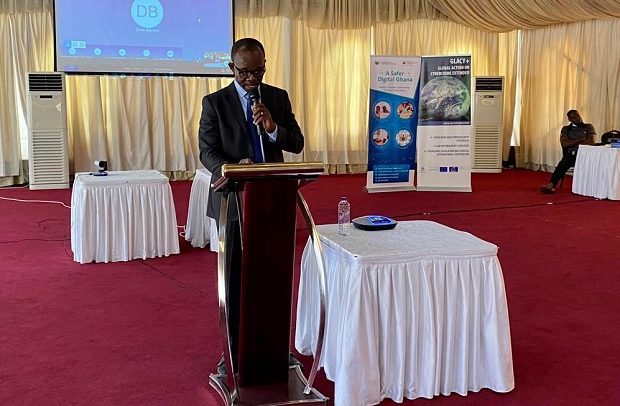Dr. Albert Antwi-Boasiako
Dr. Albert Antwi-Boasiako, the National Cyber Security Advisor, has stated that the lack of successful investigations and consequent prosecutions has led to increased cybercrimes cases.
He said this was because cybercriminals have not been deterred enough through effective prosecution to compel them to stop the act.
“The reason why investigations by the criminal justice sector have been a daunting challenge is because developing a case against a cybercriminal does not assume the form of traditional crimes which occur outside the cyberspace.”
He continued that effective prosecution however, requires the gathering of electronic and evidence which is very delicate and could disappear with time.
He was speaking at the opening of a five day workshop on cyber crime & electronic evidence handling for criminal justice sector – Southern Sector, as part of the National Cyber Security Awareness Month (Ncsam) 2020 at Nhyiaso , Kumasi.
The engagement is aimed at strengthening the judiciary with the tools that they need to contribute to securing Ghana’s digital journey through effective investigations, prosecutions and adjudication of cybercrime cases.
Dr Antwi – Boasiako continued that Authorities responsible for handling cyber cases usually face an uphill task when drawing conclusion due to jurisdictional and cross-border related challenges.
“Additionally, the lack of relevant and up-to-date legislations to address issues of digital forensics and electronic evidence, knowledge and relevant experience by investigating, prosecuting and judicial authorities also pose a challenge as well as lack of domestic and international cooperation arrangements to deal with existing and emerging cybercrime trends”
He therefore revealed that government, through the National Cyber Security Centre (NCSC) of the Ministry of Communications has introduced a number of interventions to address the challenges.
Notably among the interventions , he mentioned , include the ratification of the Convention on Cybercrime (Budapest Convention) and the African Union Convention on Cyber Security and Personal Data Protection (Malabo Convention), training and capacity building for the criminal justice sector through Ghana’s collaboration with the Council of Europe under the GLACY+ project, the establishment of Digital Forensics Lab at the Criminal Investigation Department (CID) of the Ghana Police Service through support provided by UNICEF and the establishment of a Digital Forensics Lab at the Economic & Organized Crime Office through the support of the US Government.
The National Cyber security Advisor revealed that the facilitators of the event have been accredited by the Council of Europe as qualified Trainers who are now leading the capacity building efforts across the country.
“We have a long way to go and that is why the introduction of the National Cyber security Policy and Strategy and the passage of the Cyber security Bill will contribute significantly in improving our response to cybercrimes.”
(lindatenyah@gmail.com)
BY Linda Tenyah-Ayettey


